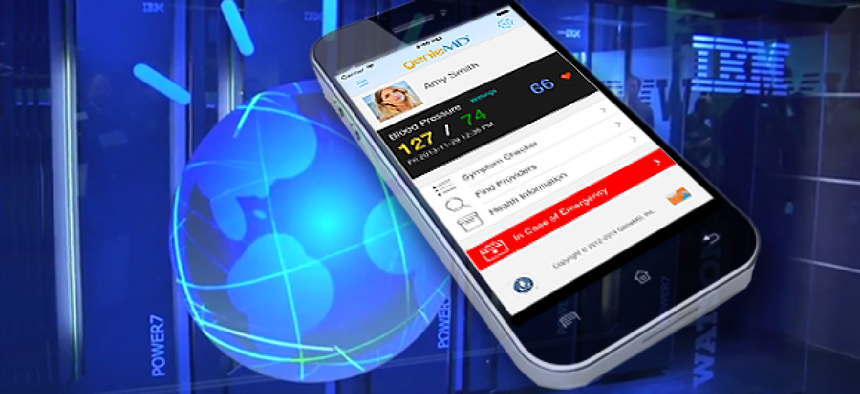IBM's Watson to supercharge personal medical app

GenieMD, one of three winners of IBM's Watson Mobile Developer Challenge, aims to tap the supercomputer to provide sophisticated analysis and information to health care queries.
It’s been a little over three years since IBM's Watson supercomputer thrashed the two all-time top Jeopardy! champions. And now, thanks to a developer’s challenge issued by the company, the first mobile applications that use Watson's natural-language and information-processing smarts are approaching the market.
Last February, IBM launched its Watson Mobile Developer Challenge, asking for entries from developers for mobile applications that make the most of Watson's capabilities. After receiving hundreds of submissions, IBM this month announced three winners who will receive 90 days of access to the Watson APIs and consulting from IBM Interactive design services to turn their concepts into products.
One winner is Red Ant with an application to train retail sales staff, using Watson to deliver deep analysis of customer preferences. If that idea wasn't so darkly manipulative, I'd personally find it … well … boring.
A second winner is Majestyk App's Fang, a soft toy animal that will answer children's questions about just about anything. OK, I'm eager to see how good this one is … even though my only child is 28.
The third winner has the potential to make a big difference in health care. GenieMD, which already offers a mobile application for tracking one's health and medical data, is incorportating Watson into the application to provide more sophisticated analysis and information.
Already, GenieMD integrates data from smart devices, such as blood pressure monitors. "Our thinking is that we should collect all of the medical information about an individual to the maximum extent possible – completely seamlessly," said Soheil Saadat, CEO of GenieMD. "But we don't want to just store the data, we want to make it actionable."
That's where Watson comes in. Saadat said Watson technology gives his company an incredible opportunity to do a number of new things.
"GenieMD with Watson will have a very, very simple user interface,” Saadat said. The user will simply push a button for the microphone, letting him talk to the computer as if he were talking to his doctor. And the computer can answer.
But that's only the beginning. Asking simple questions, such as "What are the signs of a stroke?" can be done right now with traditional search engines. Of course, noted Saadat, "every time you search for something this way you get hundreds or thousands of hits, and it is your task to sift through and figure out which one is right or wrong."
Instead, Watson can do much more than simplify returned results. It can tailor the results to the user's personal data.
"Let's say that I have a headache and I asked the question, 'Can I take aspirin for my headache?'," Saadat said. Behind the scenes, the question is modified based on the user’s personal medical information stored in GenieMD. If the user's history indicates he has a certain type of heart disease and is taking certain medications, Watson will take those factors into account in generating its answer. "That, we believe, is going to be pretty amazing."
GenieMD has the next three months to make it happen, with IBM's help. Saadat's team is currently assembling a corpus of medical literature to feed to Watson. And then, said Saadat, the real work begins – training Watson.
"The training process is the most time-consuming," Saadat said. "You need to ask questions. Sometimes it will give the correct answer, and sometimes you need to tell it what the correct answer is. But it very quickly learns, and that is the amazing and beautiful thing about Watson."
Saadat said he envisions two primary applications for the Watson-enhanced GenieMD. "First, we would really like Watson to be an assistant to give a second opinion to a physician or a nurse practitioner," he said. "If you look at the statistics, 5 percent to 15 percent of diagnoses of diseases are incorrect. That's an incredibly high number. The reasons for that, in our opinion, are that first doctors don't have a holistic view of your health. And the other thing is simply errors. Imagine if there was a second opinion."
And individual users wouldn't be the only beneficiaries of this technology. By some estimates, Veterans Administration hospitals have paid out more than $845 million in the last 10 years in malpractice claims. A Watson-enhanced GenieMD could potentially cut into that figure significantly.
GenieMD aims to address that, Saadat said, by using Watson to track health issues and make specific recommendations in light of the user's medical history.





